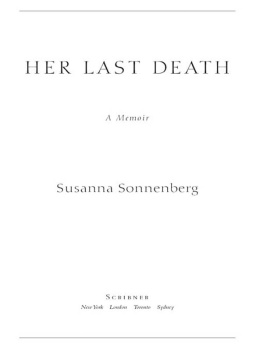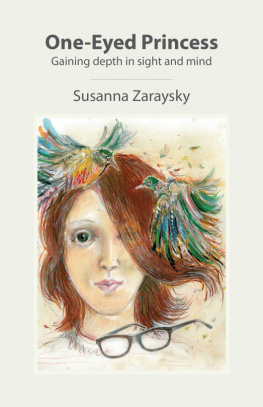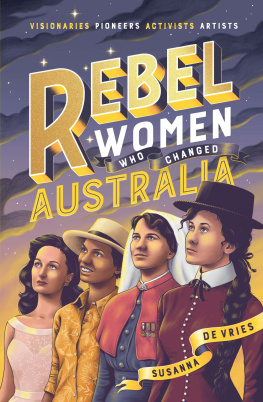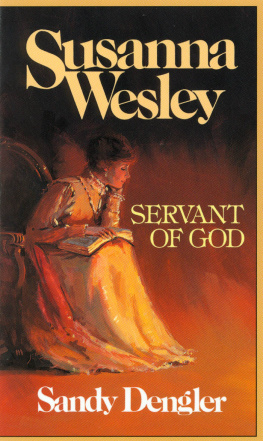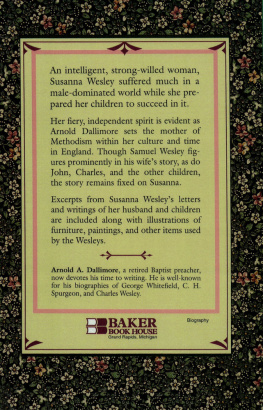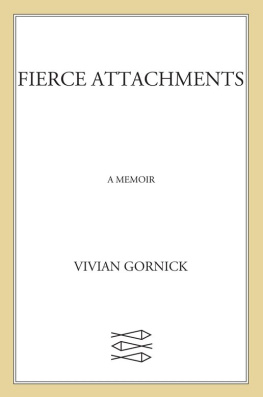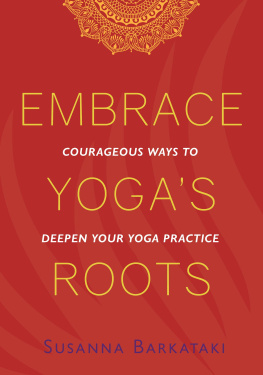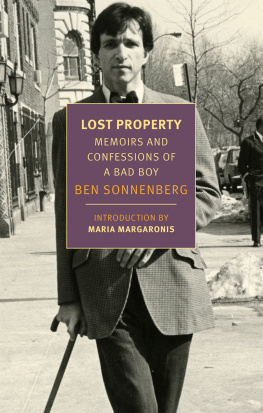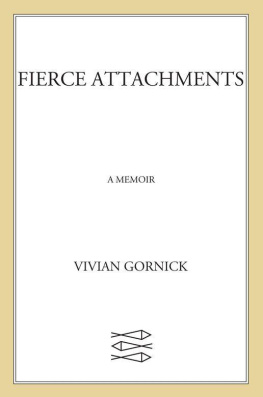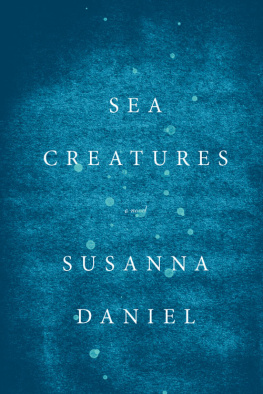All rights reserved, including the right to reproduce this book or portions thereof in any form whatsoever. For information, address Scribner Subsidiary Rights
Department, 1230 Avenue of the Americas, New York, NY 10020.
Some material in this book originally appeared, in slightly different form, in Elle and Self magazines and in the essay Twins in About What Was Lost .
SCRIBNER and design are trademarks of Macmillan Library Reference USA, Inc., used under license by Simon & Schuster, the publisher of this work.
For E. & O.
For A.
Her Last Death
T he phone shouldnt ring this early. When I answer, my aunt Irene rushes into the news. Your mothers been in an accident. Shes been in surgery all night. Shes probably going to die.
This cant be true, of course. Im waiting for the story. Irene will laugh her exasperated laugh and say my mother used to date the surgeon. Or shes already secured a better hospital room. But Irene says my mothers in a coma, and when she finishes that sentence, I stop moving around the kitchen and sit. She usually calls her sister Daphne, but she keeps saying your mother. My mother had a head-on collision after a dinner party. I want to ask if she was sober. Irene probably asked the same question of the person who called to tell her.
The police have a record this time, she says. The hospital has a chart.
The adrenaline of true emergency goes through me, and I draw a blank. I keep thinking, My mother had an accident, but the thought has nowhere to settle and stick.
Susy? my aunt says. Shes worried for me.
If I speak, Ill say, Do I have to go? So I mustnt open my mouth. I try to think what other people say in this situation.
Im afraid my mother will die. Im afraid she wont.
In a house in Montana thousands of miles from my mother, I am thirty-seven, leading an unremarkable life. My mother lives in Barbados, where she stayed after her third husband died. Ive never seen her house. She plays tennis and has houseguests, I hear, but we dont speak. Instead, I concentrate on the organic granola my two boys like, the seascape mural Im about to paint on their bedroom wall. I preside over their school board and review movies for the paper. I send the photos of Halloween costumes and birthday parties to my father and stepmother. Last night, like most nights, my husband and I read books to each of the boys, crossing back and forth between their beds with kisses for them and patient hugs for their stuffed animals. This morning my husband will pack the lunch for our six-year-old, and Ill play with the two-year-old until his nap. Weve just purchased this hundred-year-old house. On moving day I realized we would never invite my mother to see it. We live in sunny rooms messy with socks and books, a bathroom scattered with tub toys that are always drying, never dry. Christopher and I wonder before sleep at our boys happiness and their invisible trust. Sometimes Im jealous of them.
Over the years my aunt Irene and I have wearied together of the stories that start Guess what Daphne did? I tell a couple of them myself, rarely now but sometimes at a dinner party. My mother gave me cocaine! You wouldnt believe what she said to my new boyfriend! She had an affair with a mobster! These arent stories I tell my children.
The boys voices topple down the stairs before they come into the kitchen. Ill need to hang up when they start to tug at me with their small demands. Irene says my grandmother, also in Barbados, has not gone yet to the hospital. Shes hopeless. A complete wreck. I should ask for the hospitals number but say, Lets talk later, and hang up the phone. I tell Christopher enough to give him a sense of the news and go to another room to call my sister. What she knows will be different from our aunts story. This is how we move forward in my family, calling one another in almost every configuration five people can make. One woman gets a call, puts down the phone, picks it up again, repeats the story, hears another version. We fold in the new details that are not yet our own and patch together pieces until a certain sense emerges. My younger sister and I have an uneasy truce on the subject of our mother. We dont want to fight, so we dont mention her.
When Penelope answers she sounds like shes drowning. Oh, sweetie, I say until she can stop sobbing and tell me what shes heard. Newly married, lucky with fun jobs that flame out fast, Penelope lives in the New York apartment where we grew up, subletting from our mother. She doesnt seem to mind being buoyed by the swells of Daphnes manic behavior. When our mother comes to the city, Penelope gives her pink sheets in the room that used to be ours and carries the paper in to her in the mornings.
Penelopes report matches Irenes.
Ive got the first flight out in the morning. What about you, she says, inflection absent.
Ive got to figure out the kids, I say. Ill call her back.
Christophers mother could stay with the boys. He says, Just let me know what you need, Ill do it. Ill need him to come with me, but what else? What else do I need? I go on-line, look into fares. All the flights are full, the cost enormous. Im not sure I can do anything, my travel agent warns. Im off the hook, relieved, but theres also the part of me that longs for my mother in moments like these, her gall and grandeur. In the airports of my childhood shed say, Girls, you sit down over there, and shed straighten her fitted suede jacket, align the silk scarf at her throat and ease her way to the front of the first-class line for an over-booked flight. Dont worry, Id tell Penelope, holding her hand. Shell get us on. I could pick out our mothers laugh above the other voices, then her confidential murmur as she made a gift of her attention to the clerk behind the counter. People, men especially, liked doing things she wanted, couldnt help themselves. She made them feel theyd be important to her. Her well-cut hair flowed past her shoulders, and she lined her eyes with kohl. She had elegant arched eyebrows. She wore platform heels, even with her bad back, and sheer blouses fastened in a V between her breasts. Sometimes people thought she was our babysitter, a sophisticated, pretty teenager. Shed brandish her knockout smile and say, No, Im the mummy. She knew wit made her sharp features softer, and she was funny, agile with an anecdote or a naughty observation. When she beckoned we got up and went over, and the clerk would say, Im sorry about your grandmother or I hope your daddy will be okay. We knew to fall into the act long enough to make it to those first-class seats.
When we went out together, my mother made us the stars and the champions. She tossed off rapid, irreverent remarks, urged indulgence out of the most recalcitrant of salesgirls, seduced the most unhaveable of men. She spent money with fuck-you abandon. To walk into a deli with her and order a sandwich was a particular commitment, a willingness to let her own the day.

